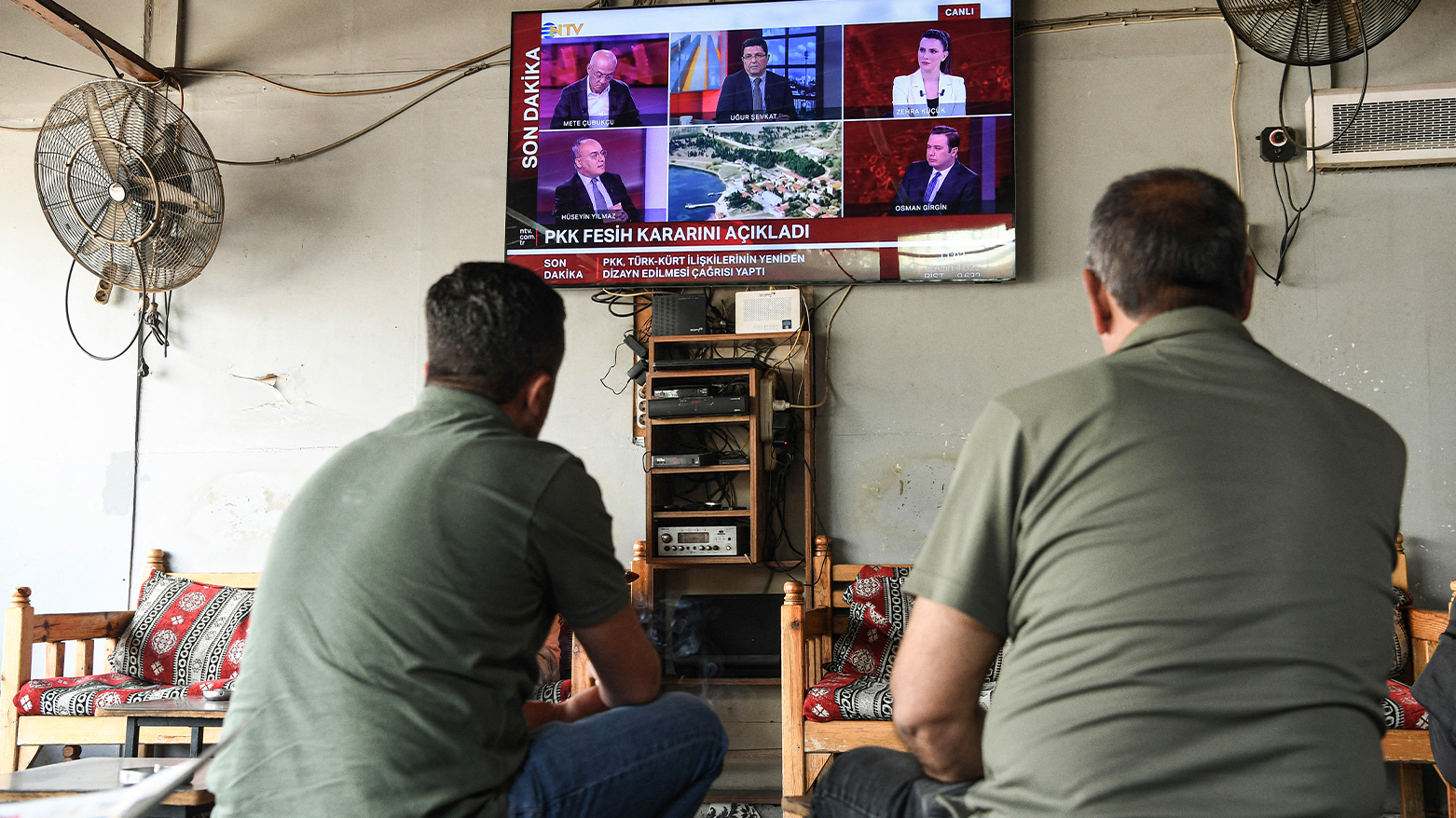'A Key Step Toward Renouncing Violence,' Says Iran on PKK Disarmament Call
According to remarks reported by Iranian media on Tuesday, Iran's FM Spokesperson Esmail Baghaei affirmed that the Islamic Republic of Iran “welcomes any process that would stop acts of terrorism and strengthen security in the neighboring country of Türkiye.”

By Kamaran Aziz
ERBIL (Kurdistan24) – In a diplomatic statement, Iranian Foreign Ministry Spokesperson Esmail Baghaei has welcomed the Kurdistan Workers’ Party (PKK)’s recent decision to disarm and disband, describing it as a “key step toward renouncing violence” and reinforcing stability across the region.
According to remarks reported by Iranian media on Tuesday, Baghaei affirmed that the Islamic Republic of Iran “welcomes any process that would stop acts of terrorism and strengthen security in the neighboring country of Türkiye.” Tehran’s endorsement follows a sweeping announcement by the PKK earlier this week that it would dissolve its organizational structure and end its decades-long insurgency against the Turkish state.
The development, first reported by the PKK-affiliated Firat News Agency and confirmed by multiple international outlets including The Washington Post, Le Monde, and The Week, signals a pivotal moment in one of the longest-running conflicts in the Middle East. Classified as a terrorist organization by Türkiye, the United States, Britain, and the European Union, the PKK held a secret congress in northern Iraq from May 5 to 7, where its leadership declared that the group had “completed its historic mission” and would henceforth pursue Kurdish rights through democratic means.
The decision to disarm was made in response to a February appeal by Abdullah Ocalan, the group’s imprisoned founder and symbolic figurehead. Ocalan, who has been serving a life sentence on Imrali Island since 1999, called for an end to the armed struggle, stating that there is “no alternative to democracy.” The PKK declared a ceasefire in March, setting the stage for the May congress decision.
The Turkish government, while cautiously optimistic, has stressed the need for full implementation.
The Washington Post cited the Turkish President Recep Tayyip Erdogan, labeling the announcement “important for the security of our country, for the peace of the region and the strengthening of the eternal brotherhood of our nation.” Yet skepticism remains high, particularly over whether the group’s various branches—including the Syrian-based YPG and the Kurdish-led Syrian Democratic Forces—will be included in the disarmament process.
International reaction has been measured. The European Union issued a statement urging “all parties to seize the moment” to work toward a comprehensive peace process and political solution to the Kurdish question. Analysts, however, remain wary of the ambiguities surrounding the fate of PKK fighters, the process for disarmament, and the absence of any formal concessions from Ankara.
The BBC reported mixed sentiments in the Kurdish-majority city of Diyarbakir, with many residents expressing cautious hope for an end to the violence. Some called for an amnesty for PKK fighters and the release of imprisoned Kurdish politicians, viewing those steps as essential to meaningful reconciliation.
The announcement also has regional implications. With the PKK’s influence extending into some northern mountainous parts of the Kurdistan Region in Iraq and northeastern Syria, countries like Iran, which has battled cross-border insurgencies and maintains a sensitive posture toward Kurdish movements, view the disarmament as a pathway to de-escalation.
While challenges remain, the move has been hailed by many as a historic chance to resolve a conflict that has claimed over 40,000 lives since 1984.
As the PKK enters what appears to be a final transition away from armed insurgency, the broader region—and the international community—will be watching closely to see whether this initiative will yield lasting peace or merely open a new chapter in the protracted Kurdish struggle for recognition and rights.